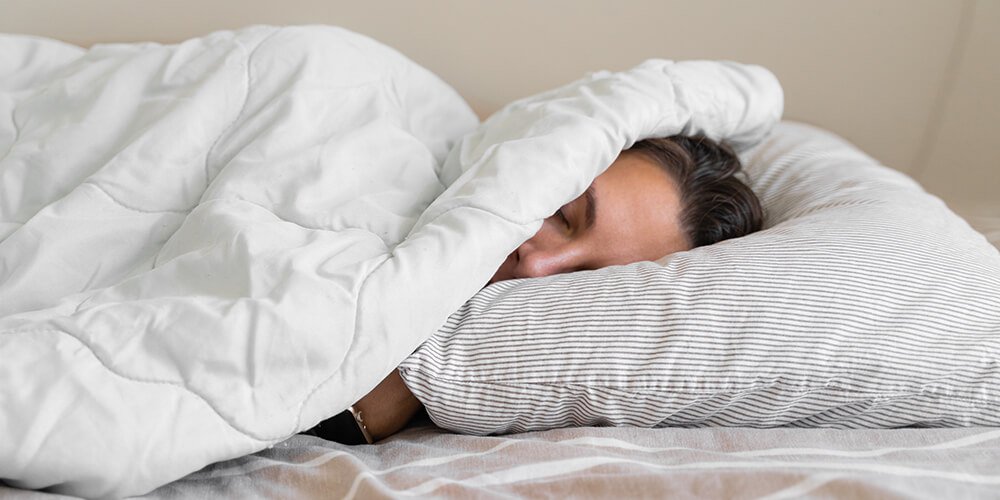Importance of a Good Sleep Routine
BY APRIL PASCARELLI
Growing up, I used to think that sleep was overrated. Often, and I mean often, I was up after midnight yet waking at the crack of dawn to get to work. Repeat that cycle every day for several days before flat-out crashing. When weekends rolled around, I was lucky to get out of bed before noon. This “routine” went on from my college days when I was up baking bagels at 5 AM into my twenties once I adapted to the big city corporate lifestyle. Those late nights out are long gone, but sometimes I still manage to stay up too late - typically writing these days. With a family and responsibilities, erratic sleep patterns are in no way sustainable. And no matter how old we are, our bodies need sleep! And a good sleep routine is necessary for several reasons. Need a refresher course on why? If you struggle with healthy sleeping habits, you will want to keep reading for a few pointers on putting yourself to bed.
Turning off the lights at night and tucking ourselves in seems like it should be relatively easy, right? But this proves difficult for many. Not only do we live in a go, go, go society leaving us with little time for ourselves, but it leads to us feeling like we need to fill all of our hours with something. After putting kids to bed or finishing up work finally, those nighttime hours morph into an extension of the day where we try to cram in more or force ourselves to stay awake to get things done rather than rest and sleep. We also have every distraction known to man today, from TVs in our bedrooms to smartphones that never leave our side. So, what do we do about our lack of time, never-ending lists, and insatiable need for sleep? Well, for starters, we make it an absolute non-negotiable to create a healthy habit! We already know that eating healthy and exercising are crucial factors in our overall health and well-being. Our sleep should be thought of in the same way - especially if you want to be at your best - physically, emotionally, and mentally!
Immune Support
Having a healthy immune system is key to curbing illness. When we have poor or insufficient sleep, inflammation creeps in. Inflammation within the body is an indicator that something is off. Lack of sleep could potentially increase the risk of developing high blood pressure, sleep apnea, and heart disease. One analysis of 19 studies discovered that sleeping fewer than 7 hours per day resulted in a 13% increased risk of death from heart disease. On the flip side, excessive sleep (more than 9 hours) also has been linked to these things. So, get your recommended 7-9 hours of sleep, and you may strengthen your heart while also giving your immune system the boost it needs!
Brain Function
From concentration to productivity to problem-solving skills, a sleep deficit can make or break your brain’s ability to think. Feel like you’re always in a fog and can’t find focus, or is your memory lacking? Take tabs on your nightly patterns and program yourself to put the screens away and your head down. Staying up too late and logging in for work the next day could have you feeling sluggish and short on reflexes. Not to mention that lack of sleep can be comparable to drinking too much alcohol, causing decisions to be impaired and reaction time to decrease. (This is dangerous and can be detrimental to yourself and others.)
Overall Mood
Consider the last time you did not sleep well and how you handled your emotions the next day. A shortage of sleep leads to stress and unsteady emotions. Maybe you snapped at your coworker or lashed out at your spouse. Or you felt tense, anxious, and on edge, and the buildup had you biting your tongue before responding to your children. We have all been there! And so we all know that being sleep-deprived can majorly affect our day-to-day interactions and our ability to cope with whatever life brings at us. If we stay stuck in a sleep rut, it could lead to depression as well. Feeling tired all the time can cause us to feel unmotivated, anxious, and ultimately unworthy.
So, turn off technology before bed, sleep away from your cell phone, turn off lights (even the littlest bit can affect our sleep quality), and call it a night. Aim for your recommended sleep amount and weed out interruptions to enhance your circadian rhythms. Supercharging your overall sleep hygiene will improve your quality of life (you will be much happier) and help you maintain a healthy weight (without the hormones and lack of motivation literally weighing you down). And even better, your workouts and athletic performance will feel more polished, and you will reduce your risk of injury. Getting adequate sleep can help to boost fine motor skills, reaction time, muscular power and endurance, and overall skills. So catch up on some REMs with a little power nap and see if you can take your physical performance to the next level.
In the meantime, consider how your sleep - or lack of it - is bringing your moods and days down. And then dissect which bad habits of yours (or a partner's) are contributing to keeping you up at night. Lay down the law at your house, lower the lights, and get ready to feel refreshed and rejuvenated with a revamped sleep routine.

